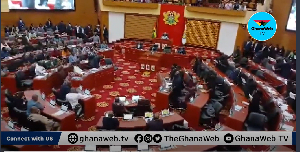A new Afrobarometer study has shown that Ghanaians are willing to pay taxes.
The report also noted that although the people find it difficult to know how tax revenues are used they endorse taxation and are even willing to pay higher taxes to support the country’s development,
However, a majority of citizens say it is difficult to find out what taxes and fees they are supposed to pay and how the government uses tax revenues.
The analysis finds that citizens are more supportive of taxation if they believe the government is doing a good job of delivering basic services.
“But many citizens also express mistrust of tax authorities and see widespread corruption among tax officials.
“In its 2021 budget statement, the government introduced new taxes, including a 1% COVID-19 levy added to the VAT and a 1% addition to the National Health Insurance Levy (NHIL).”
Afrobarometer is a pan-African, nonpartisan survey research network that provides reliable data on Africans’ experiences and evaluations democracy, governance, and quality of life.
Seven rounds of surveys were completed in up to 38 countries between 1999 and 2018.
Round 8 surveys in 2019/2021 are currently underway. Afrobarometer conducts face-to-face interviews in the language of the respondent’s choice with nationally representative samples.
The Afrobarometer team in Ghana, led by the Ghana Center for Democratic Development (CDD-Ghana), interviewed 2,400 adult Ghanaians between 16 September and 3 October 2019. A sample of this size yields country-level results with a margin of error of +/-2.
This report comes at a period when the government has received flak for these new taxes in the 2021 budget statement at a time scores of Ghanaians cost of living has gone up following the impact of the COVID-19.
The government has introduced a Covid-19 Health Levy of a one percentage point increase in the National Health Insurance Levy and a one percentage point increase in the VAT Flat Rate to support expenditures related to COVID-19.
“To provide the requisite resources to address these challenges and fund these activities, government is proposing the introduction of a COVID-19 Health Levy of a one percentage point increase in the National Health Insurance Levy and a one percentage point increase in the VAT Flat Rate to support expenditures related to COVID-19,” the budget said.
A financial analyst with the Dalex Finance, Mr Joe Jackson, said the 2021 budget statement is not bold enough.
He said given the situation the local economy is faced with following the impact of the coronavirus pandemic, the government should have been bold enough to borrow more to deal with the ravages of the pandemic.
Prior to the budget reading, Mr Jackson had asked the government to borrow more to deal with the effect of the pandemic.
Speaking on the Key Points on TV3 Saturday March 13, Mr Jackson said “Nothing has changed. We are as broke as we were before COVID.”
He added “It is not bold enough. it is the easy way out because it only introduced taxes.”
Lawmaker for Tamale North, Alhasan Suhuyini has said “The government introduced burdensome taxes on some companies already overburdened by COVID. There is the tax on sanitation that we are going to deal with. There is also the COVID-19 levy for us to pay.
“How much more can one be insensitive? As a people we have already paid for COVID by the loved ones lost and by businesses that have been lost.”
Business News of Friday, 9 April 2021
Source: 3news.com
Afrobarometer study shows many Ghanaians willing to pay taxes despite minimal benefits
Opinions












